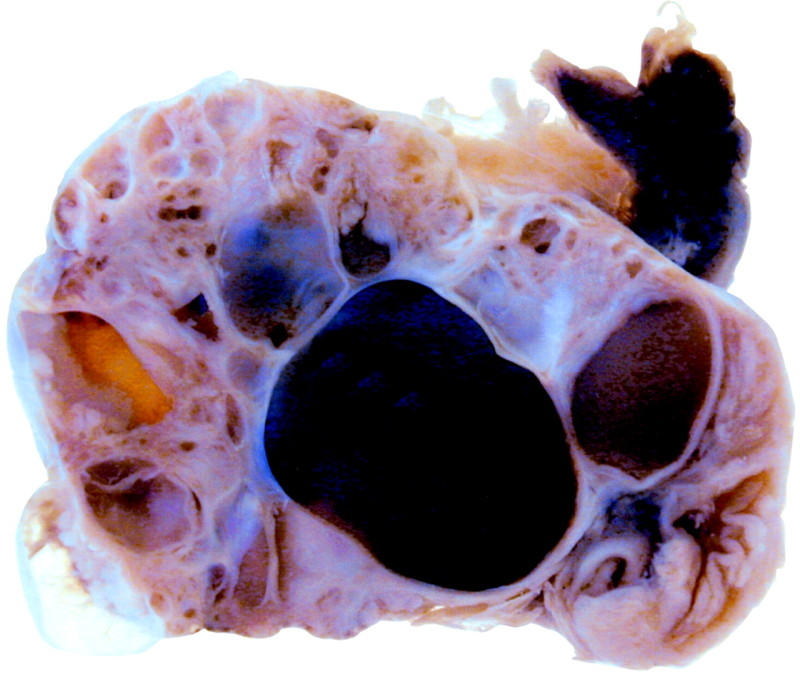In the field of reproductive medicine, there is a lot of confusion between women that have polycystic ovaries, and those that have PCOS, a metabolic disease where one of the key signs is having ovaries that contain an abnormally high number of follicles.
Many of these follicles are encrusted with cysts, hence the name of the disorder. However, those searching for information on polycystic ovaries, or PCO as it is known in scientific and research circles have often been stymied by the common practice of conflating the two terms as if they were once and the same.
While these two conditions share many similarities, they are not the same state, despite assertions to the contrary. In this article, we will briefly go over five major differences between polycystic ovaries and Polycystic Ovarian Syndrome, so that you can understand what it means to have PCO or PCOS.
Let’s begin…
1) PCO refers to the ovaries having a higher number of follicles than normal…
… while PCOS is a metabolic disorder related to heavily unbalanced hormone levels released by a patient’s ovaries. Unlike PCOS, PCO is not necessarily a disease, as it can just be a deviation from the normal amount of follicles that the average female has (1).
You have PCO if you have more than 15 follicles per ovary, while PCOS sufferers generally have 50 or more. PCO is not so much a disease as it is a symptom of an underlying problem.
2) PCO is a more common condition than PCOS
While one in ten women have PCOS, having polycystic ovaries is far more common, with anywhere from 20% to 30% of the population having more than the normal amount of follicles in their ovaries (2). Most of those in the latter group will never realize it though, as merely having polycystic ovaries tends to be asymptomatic in many cases (more on this later).
3) PCO develops later in life than PCOS
While both PCO and PCOS tending to be genetic, those that merely have polycystic ovaries instead of full-blown polycystic ovarian syndrome usually develop their abnormal amount of follicles late in their 20’s (3).
Those that have PCOS usually begin showing its symptoms (hirutism, excessive acne, weight problems) during their teen years (4), as the metabolic underpinnings that define it express themselves much earlier than the mere emergence of cysts that are the only signs of PCO.
4) PCO can be caused by a variety of other conditions aside from the machinations behind PCOS
Technically, the wacky metabolic problems that cause PCOS are a cause of polycystic ovaries (duh), but it is far from the only reason that women develop PCO.
There is a lot of disagreement as to what causes PCO, but alternative explanations outside of the mechanisms behind PCOS point to underactive thyroid glands (hypothyroidism) (5), as well as it being a nascent condition that evolves into PCOS dependent on your eating and exercise habits.
5) Women with PCO can still get pregnant, while those with PCOS have great difficulty with this
Women that have been found to have polycystic ovaries can still get pregnant without much difficulty, yet those with PCOS have had problems conceiving (and when they do, the rate of miscarriages is shockingly high).
The reason for this is that in the latter case, hormonal balance that many with PCO is possess is completely gone, with insulin stimulating the production of androgens that interferes with proper ovulation (6).
Eggs often fail to be released, and when they do make it out of the follicles, they are often at an immature stage of development (7). This results in frequent miscarriages, while women that only have polycystic ovaries don’t have compromised hormonal levels, giving them a much better chance of getting pregnant and carrying their fetus through to childbirth.
References:
- Oxford Journal
- Informa Healthcare
- CMDRC
- NIH
- Hormones Matter
- WebMD
- Hormones.gr


Celiac dis-ease has always irtnefered with the uptake of all nutrients through the intestine. It is alarming still, that the connection between early menopause and infertility were made and tied to Celiac patients. Understanding what has happened to our food chain in the last 20+ years with Monsanto, the indiscriminate addition of Growth Hormones, Antibiotics to cows/pigs/etc. and chemicals in the crops from Monsanto allows us to understand how dangerous a time we live in.Becoming Non Gluten is a choice that should be made by everyone, not just those with Celiac. Our bodies cannot handle the processing even as they are becoming sluggish and not able to function properly.I’ve found a solution by cutting out all white foods (flour & sugar) and by helping my body process foods better, giving me better attention, focus, energy, and eliminating Dis-ease that creeps in with the addition of those substances. I am truly going Back To A Healthy Future! RS Mallory, Austin Texas
I was diagnosed with PCOS then later got told I don’t have it but still no periods why could this be?